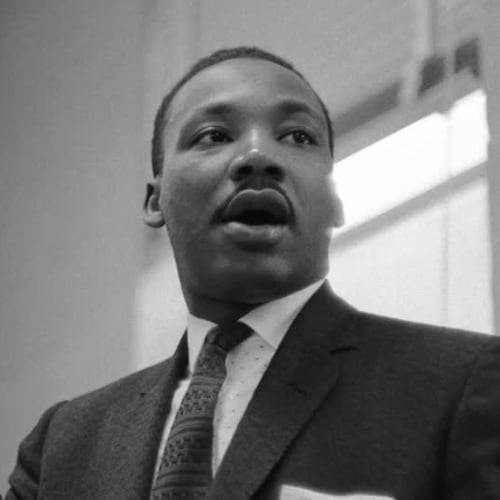Oh, the irony …
In Shakespeare’s “Othello,” envious Iago says to his boss: “Men should be what they seem / Or those that be not, would they might seem none!”
The irony is the actor playing Othello, the dark-skinned Moor, was likely white.
Today, it makes sense for us to see James Earl Jones, Mehki Phifer, Avery Brooks and Augusta native Laurence Fishburne play the part, but it wasn’t always like that.
There are likely many reasons fair-skinned men always got the role, one being a dearth of Black actors in the 17th and 18th centuries. There was also the racist idea Black people lacked the ability to comprehend Shakespeare or project the emotions of the play.
However, Ira Aldridge’s portrayal in 1825 — touted as being the first by a Black actor — laid waste to that argument.
“The anti-Abolitionist lobby claimed the slave population lacked the intellectual capacity to look after themselves,” Tony Howard from England’s Warwick University wrote, but the sight and sound of Aldridge “playing a great role on a hallowed stage defied that propaganda.”
Paul Robeson was the first African American cast as Othello in a major production in the United States, and the first Black actor in the role since Aldridge, according to the Harvard Library. His moment came in 1945.
“I think Shakespeare is something that a lot of Black performers have found difficulty seeing themselves in,” said Marlon Burnley, an assistant professor of directing at Kennesaw State University.
“You see Shakespeare and you say, ‘Oh, that’s not for me,’ because historically it’s been white men playing these roles, doing these plays. And so it’s kind of hard to get over that hump.”
Burnley landed the coveted role while a grad student at the University of Georgia.
He said he is “very adamant” about introducing Shakespeare to his students.
“We have a very diverse population, so it’s important for me to help them find their place in this work, because I think it can be really useful for them,” he said. “I think it can be empowering.”
Aldridge and Robeson found their place, despite the stereotype, even though it took 200 years to do it.
Ira Aldridge
If you’re not familiar with Ira Frederick Aldridge, you’re most likely not alone. Few 19th century Black actors are household names.
Although Shakespeare’s five-act play was first performed in 1604, Aldridge was not cast until 1825. For more than 200 years, white men portrayed the African general.
Aldridge might have been the first Black actor to play Othello, but Othello wasn’t his first part.
Born in New York City in 1807, he joined the African Grove Theatre in his teens. The African Grove was run by and catered to the Black community.
“(W)hen they performed plays written by the Bard, including ‘Richard III’ and ‘Hamlet,’ the black actors (playing white characters) were beaten up on the orders of rival theatre managers, derided and arrested,” Howard wrote. When the theater was burned to the ground, the performers took their act on the road.
Aldridge made his way to England.
Across the pond, he was considered either a hero or a villain. He performed mostly in abolitionist-friendly cities, where he was honored for his performances. This praise made him a target in Covent Garden in London.
When he took over the part of Othello at the Covent, critics “objected to his race, his youth, and his inexperience,” according to the Folger Shakespeare Library.
Never truly accepted by London’s elite, Aldridge began touring in 1852. He performed as far as Imperial Russia, including Poland and Ukraine, according to the British Library.
Aldridge died in Łódź, Poland, just weeks after his 60th birthday.
“A long funeral procession crossed the city, with members of the local theatre society carrying his medals and orders on red velvet cushions and a laurel wreath, while local people covered his grave with flowers,” the library wrote.
As lauded as Aldridge was in some parts of the world, it took another century before the second Black actor recited Othello’s monologues on a major stage.
Credit: The British Library
Credit: The British Library
Paul Robeson
PBS described Robeson as “the epitome of the 20th-century Renaissance man. He was an exceptional athlete, actor, singer, cultural scholar, author, and political activist.”
Born in 1898 to an escaped slave-turned-minister and a woman “from a distinguished Philadelphia family,” Robeson earned a scholarship to Rutgers University, where he was class valedictorian.
After getting his law degree from Columbia University Law School, he joined a firm in the early 1920s. That didn’t last long, however, considering the political climate of the time and Robeson’s activism.
Robeson left that life and began one as an actor. He played the lead in both Eugene O’Neill’s “All God’s Chillun Got Wings” (1924) and “The Emperor Jones” (1925).
He was also a singer, and his performance of “Ol’ Man River” in 1936′s “Showboat” is one most people recognize and know by heart.
Cast as Othello on Broadway in 1942, his portrayal ran for nearly 300 performances and, according to PBS, is still considered “one of the great-American Shakespeare productions.”
His advocacy for desegregation of the military, establishing anti-lynching laws and other human rights causes lead him to be labeled a Communist. He was singled out by Sen. Joseph McCarthy as a major threat to democracy. On June 12, 1956, Robeson testified before the House Committee on Un-American Activities, where he was questioned about his political speech, associations and party affiliation.
The committee revoked his passport, and It was eight years before he could travel overseas overseas again, but those years took their toll. He suffered from depression to the point he underwent shock treatments.
Robeson retired to Philadelphia and lived in seclusion until his death in 1976. There were no plaques, awards or flowers at the time.
About the Author
The Latest
Featured



